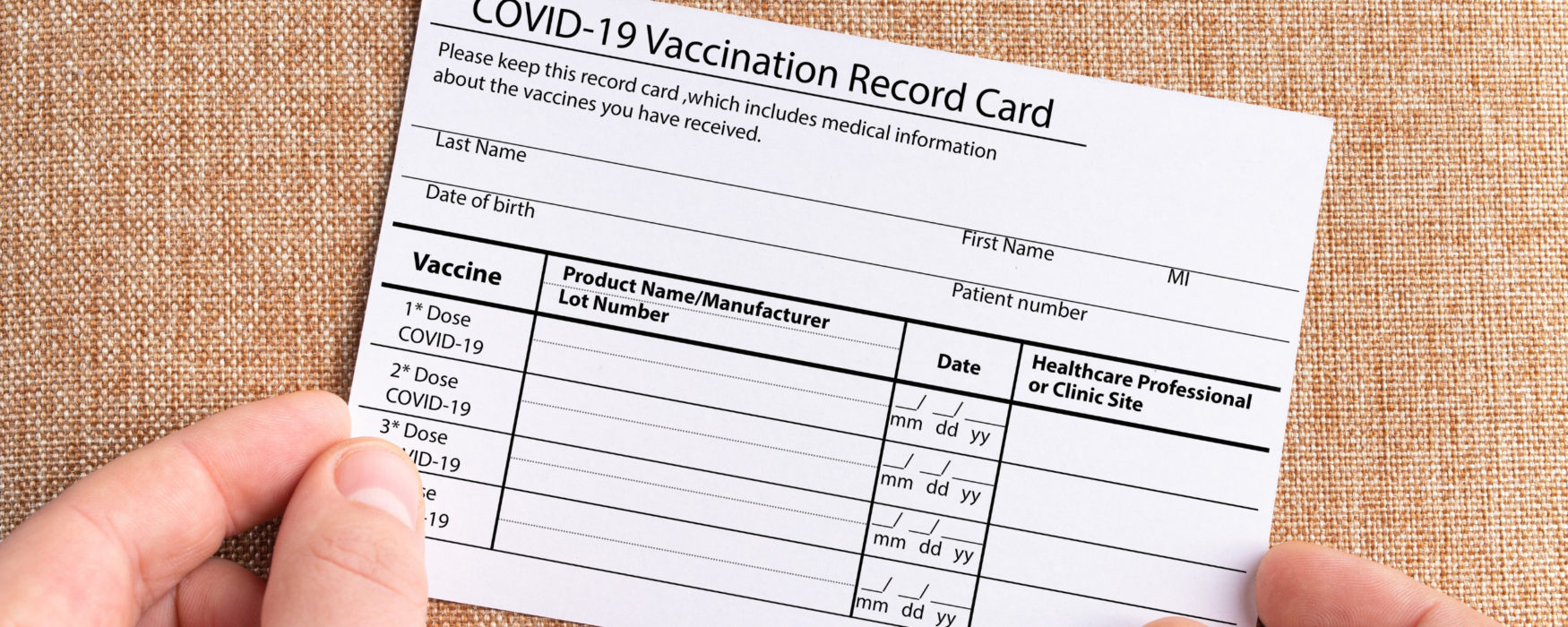
By Anthony Kaylin, courtesy of SBAM Approved Partner ASE
With air travel opening and requirements for vaccines required, the fake vaccine card market is taking off. There are a number of cases reported in the news. For example, a spelling-challenged Illinois woman who doesn’t know her Moderna from ‘Maderna’ was arrested after using a fake COVID-19 vaccination card to go on vacation in Hawaii. In another case, a New Jersey woman calling herself the “AntiVaxMomma” on Instagram sold several hundred fake COVID-19 vaccination cards at $200 each, including to people working in hospitals and nursing homes. She was arrested. Customs and Border Control consistently find false cards being shipped into the country, in one case, from Shenzhen China to Memphis.
As HR is likely to be the primary compliance for vaccine information, they now have a headache trying to determine what is and what isn’t a valid vaccination card. It will be similar to determining valid driver’s licenses and social security cards for I-9 verification. HR are not fraud experts.
What are some of the key points to know about fake vaccination cards?
First, they can be bought off the web easily enough. Second, there are a number of home-grown fake cards as well. Third, there are people who will hack health records systems to ensure that these fake cards are registered. The use and forgery of government seals such as the CDC vaccination card is illegal, with violations ranging from a fine of up to $5,000 or up to five years imprisonment for the person using the card. State laws may also apply as well. In some cases, jail time could be substantial. Unfortunately, if HR accepts a fake card, there is a question whether, like in I-9 situations, legal liability could attach to the HR representative (fines and/or jail time) as well as to the employer.
Best Practices
The law firm Fisher & Phillips makes some recommendations for dealing with this situation:
- Identify factors that reasonably indicate the need for further inquiry. Develop a list of factors that would lead you to make additional inquiries. This tool can save time, improve the effectiveness of your process, and ensure consistency. Factors should include things like the absence of information called for on the now-familiar CDC Vaccination Record card, such as the manufacturer, lot number, date, and identification of the vaccine provider.
- Apply to your practices consistently. When making additional inquiries, recognize the inherent risk of taking an action toward one employee (or group of employees) without treating others the same way. Singling out individuals or groups by asking more questions, seeking further documentation, or taking additional other steps raises the potential for discrimination or retaliation claims. Claims could of course be based on differences in gender, age, race, disability, sexual orientation, gender identity, religion, or any other protected categories. This makes consistent application of your process especially important.
- Document the reasons why you are seeking more information about a specific card. Documentation is the life blood of HR and can mitigate any risk if questions are raised.
- Recognize the sensitivity of the subject matter. In posing questions about a card, you should of course respect the personal, confidential nature of each employee’s vaccination status. Stay focused on the objective factors that led to the inquiry and give the employee an opportunity to explain. Assure the employee of the confidentiality of the discussion and safeguard all information obtained in the process.
- Ensure that your policies are clear. It is important to clearly communicate your company’s approach to vaccines and workplace safety, in the form of policies, postings, meetings, and emails. Policies are up to date regarding the requirement that all employees must be truthful and accurate in all communications with the company, spelling out that dishonesty or other violations of this policy may result in termination, even for a first offense. Policies should leave no doubt as to how serious the company is about its commitment to workplace safety and honest, accurate communications.
HR should work with legal counsel now to come up with a process, if they haven’t already. With OSHA’s Emergency Temporary Standard (ETS) released, this issue of fake cards will continue, and HR needs to be ahead of this game as the burden is likely theirs.